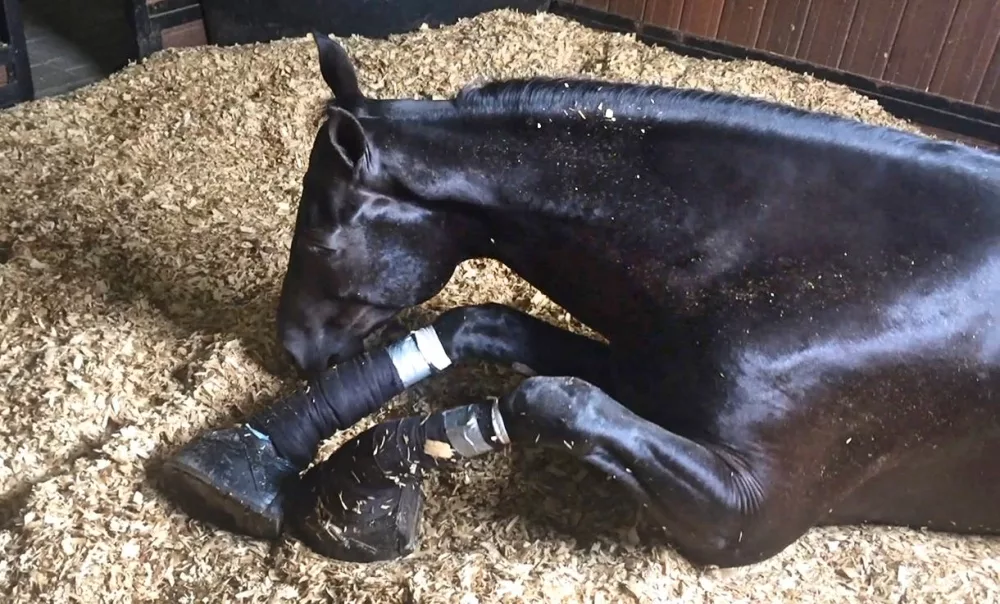Companion congressional appropriation bills aim to provide an increase in spending by a record amount to enforce the Horse Protection Act (HPA) of 1970.
The House bill (HR 4356) for agriculture appropriations proposes $3.4 million for fiscal year 2022, while the Senate (S 2599) version offers $2.34 million. After each bill passes, congressional negotiators will arrive at a figure between the proposed amounts.
The HPA prohibits sored horses from participating in shows, sales, exhibitions and auctions. Soring is the intentional application of substances or devices to horses’ limbs and feet to inflict pain to achieve an exaggerated high-stepping gait.
“I applaud the Congress for recognizing the need to increase funding and step-up enforcement of the Horse Protection Act to better protect Tennessee Walking, racking and Spotted Saddle Horses,” says Monty Roberts, a well-known horse trainer from Salinas, Calif.
The spending bills to enforce the HPA comes 45 years after Congress effectively defunded Tennessee Walking Horse show inspections. The result led to the self-policing of inspections by the Tennessee Walking Horse industry. Both houses of Congress have since attempted to change the self-policing policy in the form of the Prevent All Soring Tactics (PAST) Act, which was reintroduced by the House in early October.
If enacted, the PAST Act would prohibit the use of action devices and pads on Tennessee Walking Horses, Spotted Saddle Horses and racking horses. The legislation defines action device as “any boot, collar, chain, roller, or other devices that encircles or is placed upon the lower extremity of the leg of a horse in such a manner that it can rotate around the leg or slide up and down the leg, so as to cause friction; or strike the hoof, coronet band, fetlock joint, or pastern of the horse.” The legislation does not consider soft rubber or soft leather bell boots or quarter boots that are used to protect the foot as an action device.
The PAST Act also would eliminate self-policing by requiring the United States Department of Agriculture to assign a licensed inspector if the show’s management intends to hire one. It also increases the penalty from a misdemeanor to a felony with a maximum of 3 years of incarceration, fines of as much as $5,000 and permanent disqualification of three-time violators.
Learn More
- Senate Bill 2599: Read the appropriations bill that proposes $2.34 million for enforcing of the Horse Protection Act.
- House Bill 4356: Read the appropriations bill that proposes $3.4 million for enforcing the Horse Protection Act.
- House Reintroduces PAST Act: The Prevent All Soring Tactics (PAST) Act aims to amend the Horse Protection Act of 1970 by prohibiting various acts, improving enforcement and strengthening penalties.








